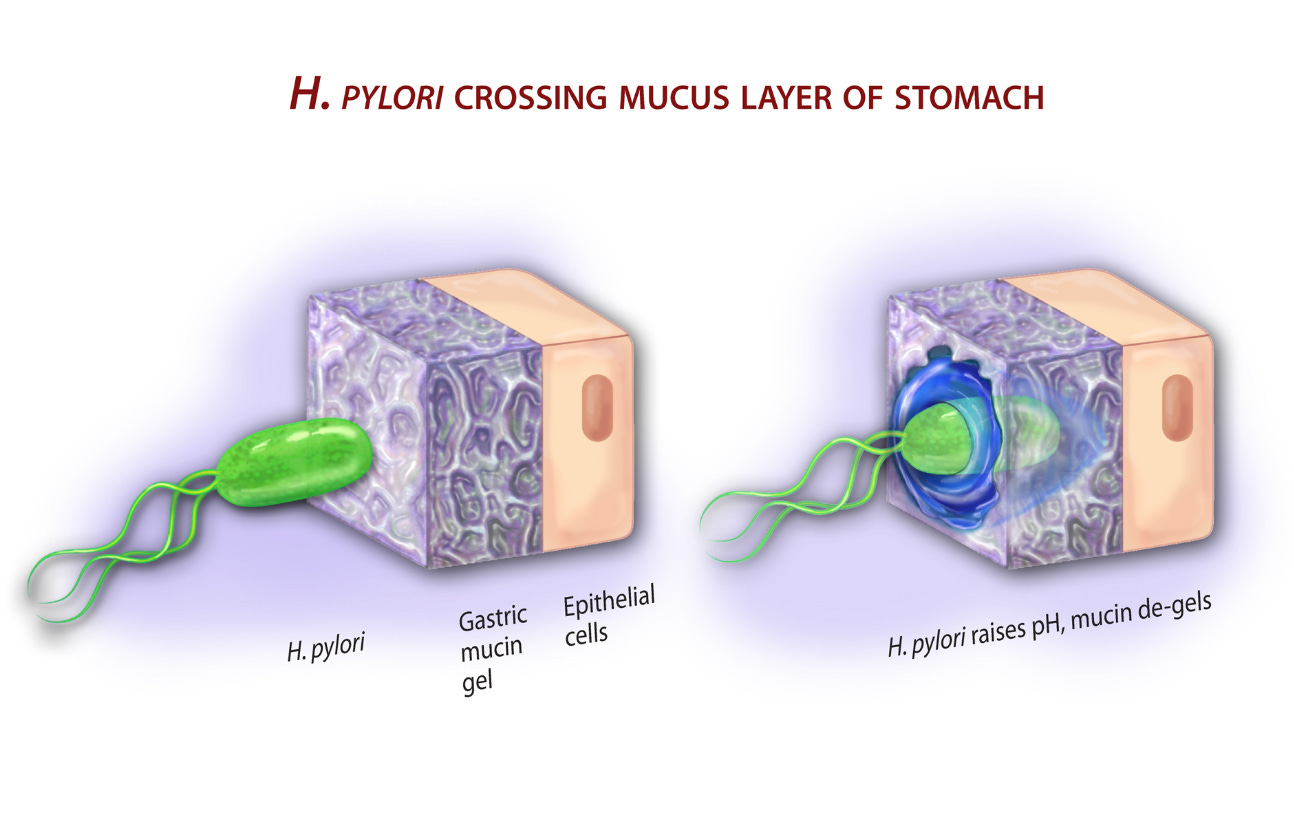188 | Food safety freakishness: the weird and wonderful world of food safety and food fraud |
Plus AI-generated "facts" are passing peer review
Webinar this Thursday;
Food safety freakishness: the weird and wonderful world of food safety and food fraud;
Food safety news roundup;
AI-generated science ‘facts’ are real now;
Food fraud news, horizon scanning and recent incidents.
Hello food champions of the world!
Guess what? We just passed 4,000 subscribers (free and paid). That’s twice the capacity of the London Palladium!

This week we welcome readers from Belgium, Chile and Namibia. And we give a huge shout-out to new paying subscribers from a U.S. chocolate company, a New Zealand ingredients supplier, a synthetic biology company and a market-leading softserve (ice cream) company. Thank you, Amber, ‘Quality’, K and Mel!
Paying subscribers keep the wheels turning for this publication. Do consider joining their ranks, even if it’s just for a month or two.
You’re going to love this week’s freakish collection of weird food safety and food fraud stories, and discover something sinister in the world of AI-assisted science writing. Plus, there’s a link to food safety news and resources for everyone and food fraud news for paying subscribers.
Enjoy,
Karen
P.S. This issue contains gross food facts, so you might not want to read it during your lunch break…
Reminder | AI Webinar 15th May
Our webinar this Thursday features AI expert Asli Solmaz-Kaiser, who will show us how AI can be used with big data to protect food businesses from food fraud.
Food safety freakishness: the weird and wonderful world of food safety and food fraud
This week’s food safety news includes some weird incidents, including a death from anthrax in food, a recall of sausages that were so badly overdosed with sodium nitrite that consumers complained of off odours and colours, and a snake-contaminated school lunch which is being treated as a human rights issue after 100 students fell ill.
There’s also a weird story in this week’s food fraud news, about a delicacy that’s only eaten in Vietnam and which can only be obtained from the intestines of pigs with a rare disease that affects only lean, elderly female pigs. Because of its high price and a sudden increase in its popularity, fraudsters are allegedly making fake versions of it with chemically treated, glue-injected, hand-twisted ordinary pig intestines. Authorities are investigating.
All that weirdness got me thinking about the other strange tales I’ve shared with you over the past three years of The Rotten Apple. Here are some of my favourites.
Industrial chemicals served as milk
In Alaska, students were accidentally served floor sealant instead of milk after containers of construction chemicals were added to a shipment of packages of shelf-stable milk. Twelve students and two adults drank the sealant after it was served by canteen staff. They were sickened but recovered.
Human AIDs medications used as growth promoters for farm animals
In 2022, I shared the mind-boggling story of how some farmers in sub-Saharan Africa were feeding human AIDS medicines to their pigs and chickens. The medicines are cheap to obtain through government medical programs and help animals to grow faster and larger as well as protecting them from diseases like African Swine Fever and Newcastle Disease.
Residues of human anti-viral medicines have been found in pork and chicken meat and in commercial animal feeds in Uganda, in at least two separate peer-reviewed studies. In one study, almost one-third of pork samples were affected.
Tick-borne brain virus spread by food
A virus that causes encephalitis (inflammation of the brain) and that is usually only transmitted by tick bites caused a food-borne illness outbreak that sickened 43 people in France in 2020.
Investigators found that the virus had been transferred to goats by ticks while they were grazing outdoors. The viral particles were secreted in goat’s milk that was used to make unpasteurised goat’s cheese. This raw cheese was the source of the outbreak.
Baby rats in chickpeas
A UK food manufacturer hand-sorts chickpeas 24/7 to prevent buoyant, pale-coloured baby rats from ending up in products, because optical sorting can't reliably detect them due to colour variability and because they float like chickpeas.

Offenders film themselves in food tampering incidents and are caught by police
In January 2025, a man pleaded guilty after police found videos on his phone showing him ejaculating onto and touching food with his penis. The foods included strawberries, donuts, cupcakes and pastry frosting, some of which had been ordered for a child’s birthday party.
In a separate incident, another man posted footage online of himself in a Walmart store spraying insecticide on foods, including fresh produce and rotisserie chickens. He admitted to the crimes when contacted by police.
Bizarre toxic growth hack for bean sprouts
In 2024, authorities in Vietnam discovered more than 20 tons of bean sprouts (likely mung bean) soaked in 6-benzylaminopurine during an inspection of six production facilities where industrial quantities of bean sprouts are produced at a rate of more than 8 tons per day.
The chemical is not allowed to be used in food processing and poses risks to foetuses, including low birth weight, hydrocephalus and congenital malformations. It’s used illegally to speed growth, reduce root size and improve the appearance of bean sprouts.
‘Syrup water’ containing the chemical was also seized. One trader told authorities that the whole bean sprout market is “not clean” – implying that all bean sprout producers in that region use the substance.
Rats running across the crust of old juice concentrate in hidden vats
A fruit juice company and its owner pleaded guilty to food fraud-related offences and admitted to selling grape juice concentrate which was a blend containing new and old concentrate from past years’ production to customers as new product.
The old concentrate had been stored in large concrete vats that were not properly covered or cooled. The vats had initially been hidden from FDA inspectors.
FDA inspectors photographed a live rat in a vat, walking over the top of a crust on the juice concentrate. The concentrate contained the remains of decaying animals, faeces from birds and rodents, insects, mould and yeast. The company sold the grape juice concentrate blends to customers who provided grape juice for a school lunch program in the United States.
Secret factory making fake sugar
Authorities discovered a clandestine manufacturing operation in Côte d’Ivoire in 2024 that was making fake sugar. The product was crystalline with a fine powder form and a reddish colour and was being sold in one kilogram bags labelled “sugar”. It’s alleged to have been made with milk powder, pellets and a “reddish dye”.
Fake garlic made from cement
After the price of garlic surged in India in 2024, consumers took to social media to report they had been duped into buying fake garlic made from cement.
Weird food recall: betel nuts in mouth freshener
Betel nuts, chewed in parts of Asia and the Pacific, for their mild stimulant effects, and perceived benefits of increased alertness and appetite suppression, are hard, oval-shaped seeds from the areca palm with an astringent, woody taste.
Mouth freshener was recalled in Denmark in 2024 because it contained betel nuts, which is a non-authorised novel food in Europe.
Unusual food safety incident: gastrointestinal anthrax
In early May 2025, there was an anthrax scare in Thailand after a 53-year-old man died from gastrointestinal anthrax, with three additional suspected cases in the same region. At least 638 people were potentially exposed to anthrax after butchering livestock and eating raw or undercooked beef.
Authorities set up a 5-kilometre quarantine zone around the infection site, commenced a cattle vaccination program and gave antibiotics to all people who may have been in contact with the infected meat.
Gastrointestinal anthrax develops when a person eats undercooked or raw meat from an animal infected with Bacillus anthracis spores. Once ingested, the spores germinate in the gastrointestinal tract, growing and releasing potent toxins which cause the intestines to ulcerate and bleed. This can lead to severe nausea, vomiting, abdominal pain, bloody diarrhoea, and, if untreated, rapid progression to septicemia and death.
Gastrointestinal anthrax is uncommon in industrialised countries. Outbreaks typically occur in regions where livestock vaccination is lacking. The disease is not transmitted person-to-person.
See the story snippet in this week’s food safety news.
Stealthy food bacteria linked to Alzheimer’s disease
The bacterium Helicobacter pylori, which causes stomach ulcers, has been found in foods and can survive well in low-acid, high-moisture foods stored at refrigerator temperatures. Unhygienic food handling environments and areas with poor sanitation are linked to populations with a higher prevalence of H. pylori infections.
In 2018, researchers writing about H. pylori in the World Journal of Gastroenterology proposed that it be considered a foodborne pathogen.

In 2023 H. pylori was the subject of an extensive study which examined its role in the presence of the neurodegenerative disorder Alzheimer’s disease.
In a large case-controlled study, which drew on data from more than 4 million people, and followed observational studies linking H. pylori infections with Alzheimer’s, people with symptomatic H. pylori infection were shown to be 11% more likely to develop Alzheimer’s disease than matched control groups.
Foodborne pathogens and Alzheimer’s, that was unexpected!
Cooks dose 1,600 servings of restaurant food with hidden antibiotics
In 2024, two Chinese men were given suspended prison sentences for adding undeclared antibiotics to food they were preparing in a restaurant.
They told the court they put the drugs into the food because the food was “rather unhygienic” and they wanted to prevent diners from getting diarrhoea.
Each dish of cold appetisers was dosed with 2 mL of gentamicin sulphate, an antibiotic which was a common treatment for diarrhoea in China in past decades.
The two men admitted to treating more than 1,600 dishes this way, over the course of a year. The men were also fined, banned from working in the food industry for life and ordered to make a public apology, while the restaurant where they worked was also fined and had its business license revoked.
The crimes were discovered after a tip-off by another employee. Officials found 101 unused boxes and 4 empty boxes of gentamicin sulphate at the restaurant when they arrived to investigate the tip-off.
Hot (deadly hot) tortilla chips
In 2023, European countries suspended sales of tortilla chips with ‘extreme spiciness’, saying the high levels of capsaicinoids in the chips posed a danger to human health. This followed the death of a child in the United States who had eaten a single extra-spicy tortilla chip, despite the chips being clearly labelled as being suitable only for adults.
Adverse reactions to consuming foods high in capsaicinoids include nausea, vomiting, high blood pressure, burning eyes, and irritation of mucous membranes.
Source: 2023 Annual Report - Alert and Cooperation Network
In short: 🍏 The natural world still holds countless mysteries when it comes to foodborne illnesses 🍏 Do stealthy ulcer-causing bacteria have a secret way to damage our memories? 🍏 Who would expect that a virus which attacks human brains could make its way from the forest to our bloodstream via goat’s milk cheese? 🍏 But perhaps the weirdest stories come from people doing strange things with food 🍏 From the people who invented mouth freshener containing narcotic nuts to the cooks who were so worried about the unhygienic food they were serving they decided to add antibiotics to protect their customers, it’s the humans who are the real stars of this strange story 🍏
Food Safety News and Resources
Got some interesting news in the roundup this week, including foodborne anthrax (who knew that was a thing?!), a recall due to overdosed nitrites, and accusations of human rights abuses after children were served food that had contained a dead snake.
Click the preview box to read.
AI-generated science ‘facts’ are real now
Have you ever heard of a vegetative electron microscope? Nope? Me neither. Nor had anyone else, until recently.
No wonder: vegetative electron microscopy is not a real thing.
However, vegetative electron microscopy is mentioned in at least two dozen scientific papers. It is alleged to have made its way there through suspicious and plagiarism-ridden methods allegedly employed by certain unethical scholars.
Its mention, in a now-retracted 2022 article in the prestigious Springer Nature journal Environmental Science and Pollution Research, caught the eye of a self-appointed sleuth who looks for nonsensical phrases in science papers.
Nonsense phrases are used to spot fake papers, which analysts say are polluting the scientific literature.
The phrase ‘vegetative electron microscopy’ first started appearing in papers in the mid-2010s and may have been generated by an error in the digitising process of a paper published in the 1950s. An alternative theory is that it arose due to a mistake in the translation of Iranian science papers from Farsi to English, because the words for ‘vegetative’ and ‘scanning’ appear similar in Farsi.
Its use has increased, and investigators at The Conversation say this is because the large language models which power AI writing tools were trained on datasets containing the phrase. They therefore treat it as a genuine technology and use it in content they generate for scholars.
Wow.
So if you read a scientific paper that includes the phrase ‘vegetative electron microscopy’, you can be pretty sure it’s been put together with something less than robust scientific rigour.
But ‘vegetative electron microscopy’ is not the biggest giveaway of AI-generated content. Another now-retracted paper, published by Elsevier in Radiology Case Reports, contained the phrase “I am an AI language model”. The paper was purportedly a case report of the management of an arterial injury in a 4-month-old baby. Eight authors have their names on the paper. And it was peer reviewed.
“I am an AI language model” This phrase appeared in a peer-reviewed case report in a journal published by the prestigious publishing house Elsevier
Below for paying subscribers: Food fraud news, horizon scanning and incident reports
In this week’s food fraud news:
📌 Alert for nuts and cereals;
📌 Warnings for maple syrup and aquaculture fish;
📌 Fraud in British eggs 😮;
📌 Tallow fraud sentencing, suspicious honey, faked offal delicacy, tea made from waste and more.
Nuts and cereals alert
A food fraud monitoring service has reported sharp rises in fraud in nuts, dairy and cereals in the first quarter of 2025, saying this shows that “total fraud activity is shifting globally”. The number of reported fraud incidents, however, is lower than the number in 2024.
Nuts, seeds, cereal foods and certain other categories are among those for which warnings have





